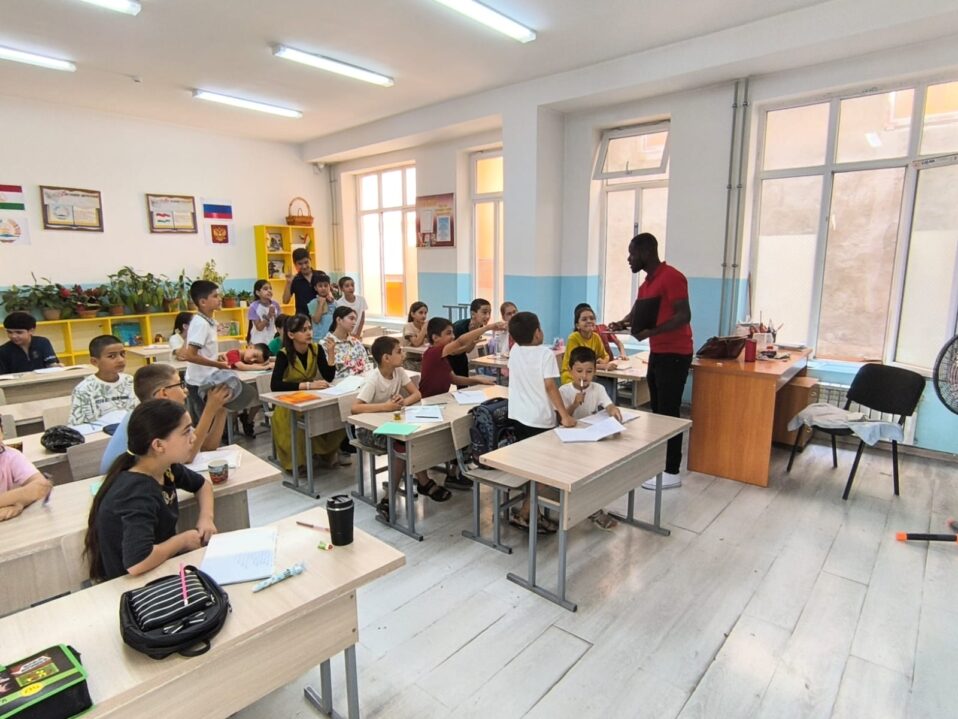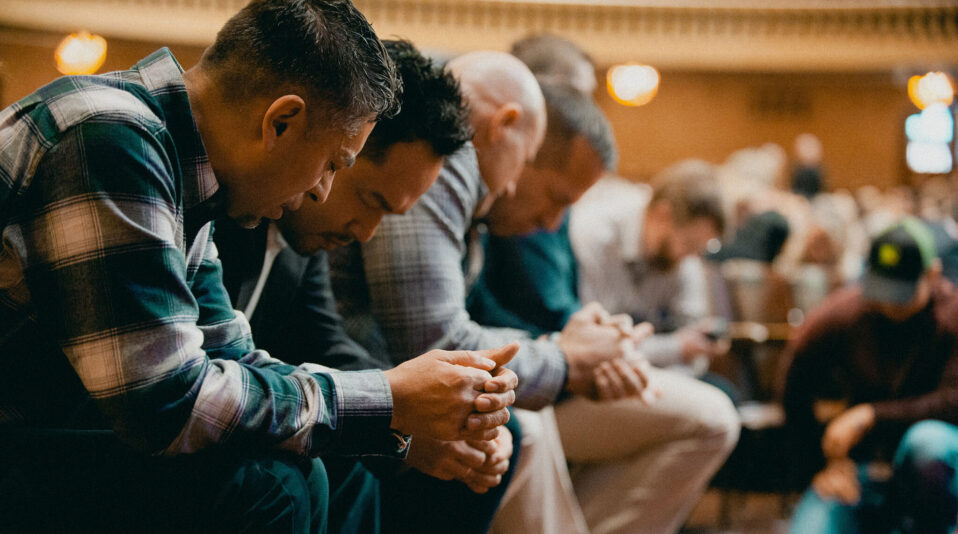In 2021, even during the ongoing COVID-19 health crisis, persecution against Christians continued at an alarming rate around the globe. Research for the Open Doors’ 2022 World Watch List—the most in-depth investigative research and report on Christian persecution available—shows that today, more than 360 million people face high levels of persecution and discrimination for their faith. That’s an increase of 15 million believers in only one year.
That’s one in 7 Christians, worldwide.
Below, we look at the top 10 countries where persecution is highest. In many of these countries, life is already difficult, but making the decision to follow Jesus and live as a Christian is a choice that puts one’s life, family and livelihood in jeopardy. In countries like Afghanistan, North Korea and Somalia, faith in Jesus can be a death sentence. And in 2021, we saw a spike in violence, new technologies that threaten the faith of millions—and a new No. 1 for the first time in 20 years.
1. Afghanistan: No. 1 for the first time
As an Islamic state by constitution, the country does not permit any faith other than Islam to exist. Simply put—it is illegal to convert. Converting to a faith outside Islam is equal to treason; it’s seen as a betrayal of family, tribe, and country.
It is impossible to live openly as a Christian in Afghanistan. If a Christian’s new faith is discovered, their family, clan or tribe feels they must save their own honor by disowning the believer, or even killing them; this is widely considered justice. Alternatively, since leaving Islam is considered a sign of insanity, a Christian who has converted from Islam may be forcibly admitted to a psychiatric hospital.
Christian persecution remains extreme in all spheres of public and private life. The risk of discovery has increased since the Taliban controls every aspect of government. This extends to owning documentation—including paperwork from international troops—that may help identify Christians.
However, through it all, faith of Afghan believers continues to deepen as they put their hope solely in Christ. One Christian said, “We will never let that hope be silenced.”
2. North Korea: Not No. 1, but no better than last year
North Korea has been at (or near) the top of the World Watch List for more than 20 years; any North Korean caught following Jesus is at immediate risk of imprisonment, brutal torture, and/or death. An estimated 50,000 to 70,000 Christians are imprisoned in North Korea’s notorious system of prison and labor camps. To make matters worse, often a family will sometimes share the same fate as the person captured.
The government (ruled by the Kim family) views Christians as the most dangerous political class of people, so the persecution is violent and intense. North Korean parents often hide their faith from their children, churches of more than a few people are non-existent, and most worship is done as secretly as possible. Life for Christians in North Korea is a constant cauldron of pressure; capture or death is only a mistake away.
Where believers are known to authorities for past “crimes,” like possessing a Bible, they are seen as the lowest rung of society and neglected for whatever meager food aid is available. North Korea continues to be extremely dangerous for followers of Jesus, and it’s not likely to change until the Kim regime is toppled.

3. Somalia: Harassment, intimidation and murder
For more than 25 years, Somalia has been a haven for Islamic militants who constantly target Christians, both in Somalia and in neighboring countries. Groups like al-Shabab operate with seemingly little pushback and control large parts of Somali territory. The small number of believers in Somalia are largely Christians who have converted from Islam. Christians are viewed as high-value targets by al-Shabab.
Even when Christian converts are not targeted by Islamic extremists, they are intensely pressured by their family. Any conversion from Islam is seen as a betrayal to family and community, so just suspicion of conversion can lead to harassment, intimidation, and even murder. Despite the ongoing COVID-19 crisis, al-Shabab continued to be active in 2021, a reminder that life for Christians in Somalia is never safe.
While no part of Somalia is safe, the areas under control of al-Shabab are the most dangerous for Christians. But all Christians who have converted from Islam are in grave danger—from their family, their community and society at large.

4. Libya: Secret lives of faith
When a person in Libya leaves Islam to follow Christ, they face immense pressure from their families to renounce their faith. Their neighbors and the rest of the community ostracizes them, and they can be left homeless, jobless, and alone. If a Libyan Christian shares his or her faith with someone else, they will likely be reported, arrested and perhaps face violent punishment.
The country has no central government, so laws are not enforced uniformly, leaving Christians in danger of overt and public persecution. Targeted kidnappings and executions are always a possibility for believers. The only way to be a safe Christian in Libya is to live a secret life of faith.
Christians are vulnerable throughout Libya, whether they live in the country, are passing through for migrant work, or are trying to reach Europe to start a new life. Extremist groups have established checkpoints and control specific areas of the country. Christians who move from area to area, looking for work, are just as likely to end up in one of the country’s overcrowded detention centers as they are to find jobs. In some cases, Christians who are apprehended are delivered to criminal officials or human trafficking groups, where they are forced into heavy labor or pushed into prostitution.
Although persecution is enormous, and being a Christian is incredibly dangerous, believers continue to meet, share the gospel and grow in their faith. As one man said, “Jesus is like oxygen, because without oxygen you cannot breathe.”

5. Yemen: Severe punishment for conversion
Yemeni Christians are mostly converts from Islam who must live out their faith in secret because conversion from Islam to Christianity is forbidden, both in Islam and Yemeni law. Christian converts are pressured by both the government and from their communities to recant their faith in Jesus; they might be arrested/interrogated for their faith, and face threats from both family and Islamic extremists who threaten apostates with death.
Yemeni culture is extremely tribal, and often the tribal punishment for denouncing Islam can be death or banishment. Both male and female converts to Christianity who are married to Muslims risk divorce and may lose custody of their children. Yemen is home to one of the greatest humanitarian crises in the world, but Yemeni Christians are additionally vulnerable since emergency relief is mostly distributed through local Muslim leaders and mosques. These groups have been accused of discriminating against anyone who is not considered to be a devout Muslim.
Life is dangerous for all Christians in Yemen, and some believers in certain areas are at particular risk, such as Christians living in the south, where there is a strong al-Qaeda presence. Converts from Islam to Christianity have also indicated that there is more pressure in the Shiite Muslim-controlled areas in the west than in areas under control of the Sunni government. The Shiite-controlled areas (which comprise approximately one-third of Yemen’s territory) are heavily policed; any dissenting opinion is rigorously repressed and likely to lead to imprisonment, torture, and possibly worse.

6. Eritrea: ‘Africa’s North Korea’
Despite almost half the population identifying as Christian, believers in Eritrea continue to suffer extreme persecution, making it still one of the hardest places in the world to follow Jesus.
The government recognizes only three Christian denominations: Orthodox, Catholic and Lutheran. Those not part of these groups are at risk of severe persecution at the hands of the state. Gatherings are raided and believers arrested. The conditions facing Christians in prison can be inhumane. Some pastors have been incarcerated for over a decade and have faced solitary confinement. There are possibly more than 1,000 Christians imprisoned in Eritrea, with none formally charged. While some are released, many are moved to military service—which is no freedom at all—or house arrest. The ongoing detention of Christians shows the government has no intention of relaxing its repressive policies.
Christians not recognized by the state are especially vulnerable to the everyday surveillance imposed by the state, with phone calls monitored, bandwidth kept slow, and a network of citizens tasked with spying on their neighbors. This intrusive level of monitoring has led to Eritrea holding the infamous title of “Africa’s North Korea” (The Economist, Aug. 14, 2018).

7. Nigeria: Once again, the most violent country for Christians
Persecution in Nigeria is brutally violent. In much of northern Nigeria, Christians live their lives under the constant threat of attack from Boko Haram, the Islamic State West Africa Province (ISWAP), Fulani militants and criminals who kidnap and murder with few consequences.
While all citizens of northern Nigeria are subject to threats and violence, Christians are often specifically targeted because of their faith—ISWAP and Boko Haram want to eliminate the Christian presence in Nigeria, and Muslim Fulani militants attack Christian villages specifically. In addition to violent risk, Christians in some of Nigeria’s northern states also live under Shariah law, where they face discrimination and treatment as second-class citizens. Christians who convert from Islam also face rejection from their families and are often pressured to recant their faith in Jesus; sometimes, they are even violently attacked.
Because of the violence, thousands of Christians are forced to live in formal or informal camps for internally displaced people (IDPs). This situation contributes to the vulnerability, because people who have lost their home or loved ones are now effectively refugees within their own country. Women and girls tend to have higher levels of vulnerability, and anyone who converts from Islam to Christianity is likely most vulnerable of all.

8. Pakistan: Blasphemy laws continue
In Pakistan, Christians are considered second-class citizens and are discriminated against in every aspect of life. Church leaders can be arrested if they don’t abide by the authorities’ wishes; these arrests act as warnings to the Christian minority and intimidates them further.
The COVID-19 crisis led to an increase of aid being provided to Christian day laborers only if they converted to Islam. Pakistan’s infamous blasphemy laws continue to be leveraged to accuse non-Muslims (or minority Muslim sects) of insulting the Prophet Mohammed or the Quran—even a false accusation can lead to mob violence. Additionally, a silent epidemic of kidnappings, forced marriages and forced conversion of Christian girls and women continues to take place in Pakistan.
All Christians in Pakistan are potential victims of abuse and discrimination, but anyone caught converting from Islam bears the brunt of persecution. Even established churches come under pressure and surveillance from the government.

9. Iran: Converts raided, arrested and threatened
Converts from Islam to Christianity are most at risk of persecution, especially by the government and, to a slightly lesser extent, by society and their own families.
The government sees the growth of the church in Iran as an attempt by Western countries to undermine Islam and the Islamic regime of Iran. House groups made up of converts from Muslim backgrounds are often raided, and both their leaders and members have been arrested, prosecuted and given long prison sentences for “crimes against national security.”
The historical communities of Armenian and Assyrian Christians are recognized and protected by the state, but they are treated as second-class citizens and are not allowed contact with Christians from Muslim backgrounds.

10. India: A systematic targeting of Christians
The persecution of believers in India is intensifying as Hindu extremists aim to cleanse the country of Christian presence and influence. The driving force behind this is Hindutva, an ideology that disregards Indian Christians and other religious minorities as true Indians because they have allegiances that lie outside India. This is leading to a systemic, and often violent and carefully orchestrated, targeting of Christians and other religious minorities, including use of social media to spread disinformation and stir up hatred.
The COVID-19 pandemic has offered a new weapon to persecutors. In some areas, Christians have been deliberately overlooked in the local distribution of government aid and have even been accused of spreading the virus.
Amidst increasing persecution, the faith and resolve of believers continues to strengthen. One Christian said, “The Bible warns us we will face persecution, so we are prepared for any situation.”
One Church, one Family
The numbers are important—they help us frame the picture, but the World Watch List offers a bigger vision and story. Behind every statistic and fact is a life, a family and a church that represents deep suffering, but also courage and inspiring faith—people who know the consequences, yet still choose Jesus. Through our Savior, we and every Christian living in Afghanistan, North Korea, Somalia and the rest of the top 50 countries on the 2022 World Watch List are one Church and one Family.
This year, we’ve made it easier to pray through the countries on the World Watch List. The 2022 World Watch List is a 52-week prayer guide that will help you stand with your brothers and sisters around the world. Click here to download the full book for FREE. To help you stay connected with these believers, Open Doors also has a mobile prayer app that alerts you to prayer requests learn more and sign up to get regular updates delivered to your phone
Released each year, Open Doors’ annual World Watch List uses extensive research, data from Open Doors field workers and external experts to quantify and analyze persecution worldwide. It is certified by the International Institute for Religious Freedom (www.iirf.eu), which carries out an annual audit of the list’s methodology.
*representative names and photos used for security reasons
Source: Open Door





